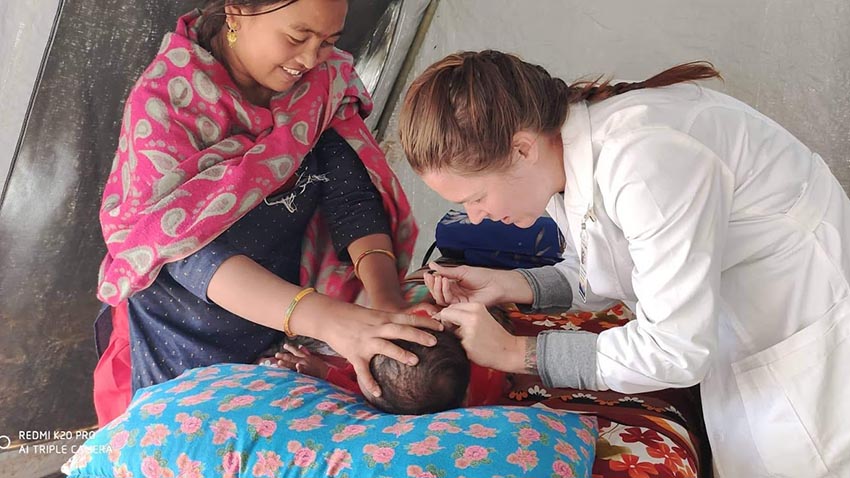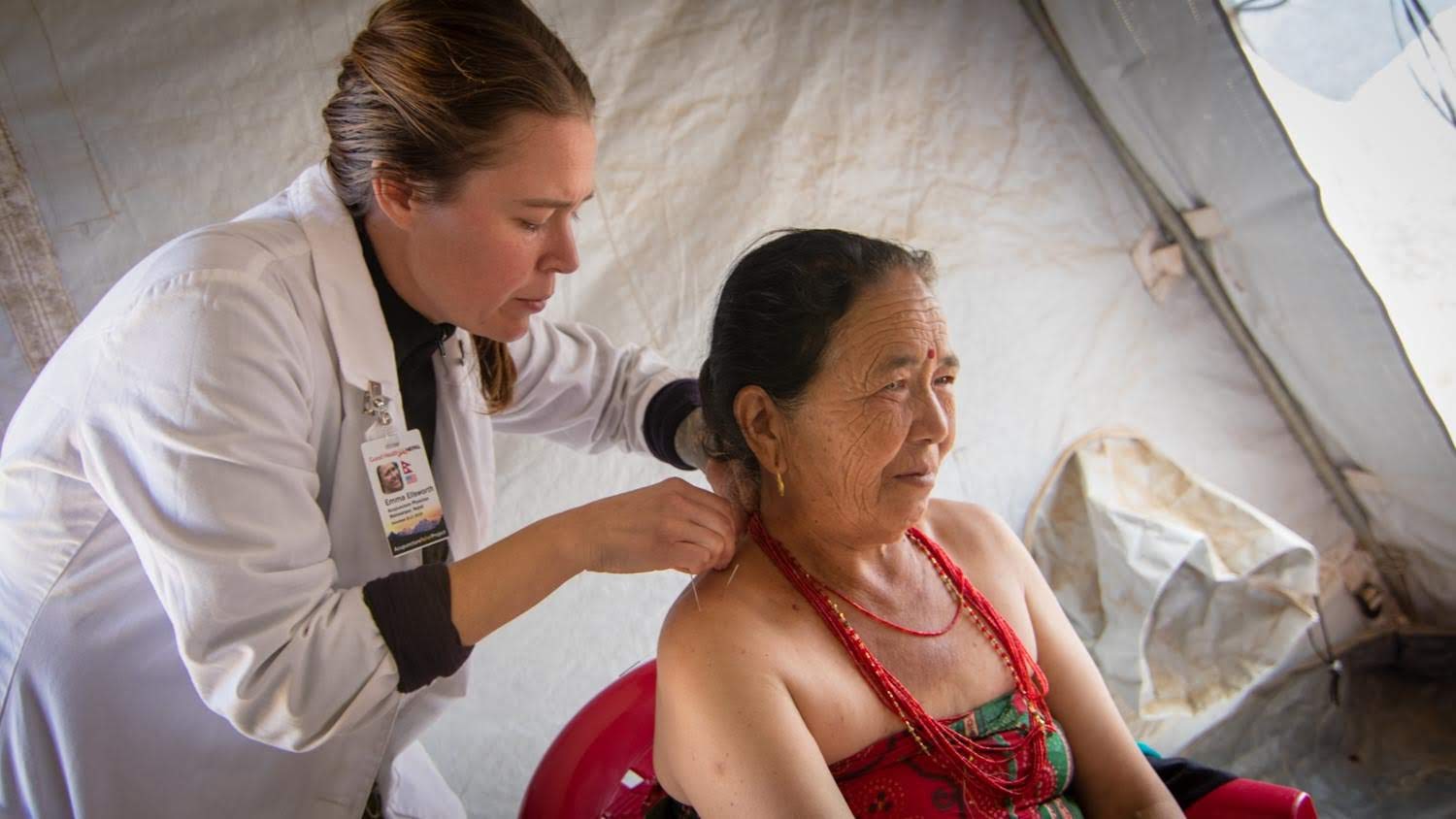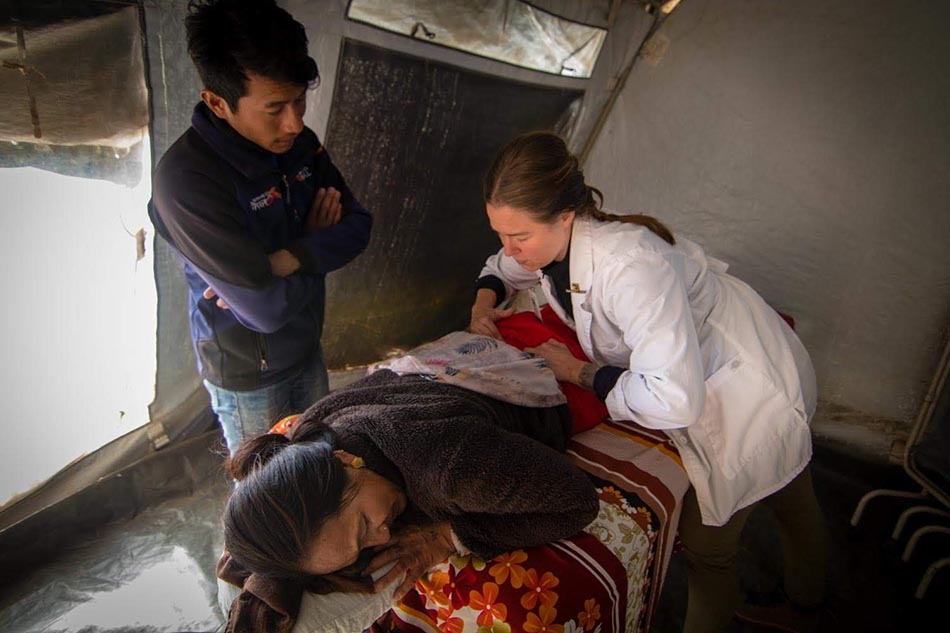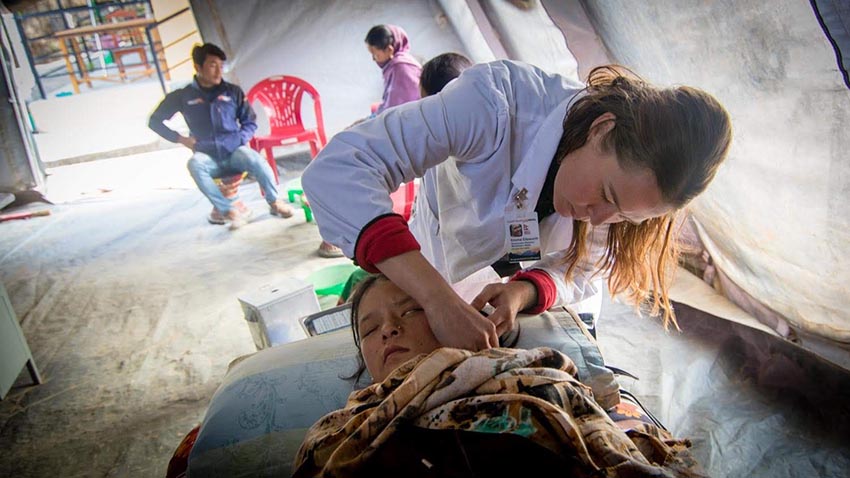
In my first week with Acupuncture Relief Project, a grandmother came to the clinic complaining of abdominal pain. She had eaten some bad buffalo meat and was now suffering from diarrhea and cramping. Despite her discomfort, she had a face that seemed made for smiling. As we discussed her pain, her face broke into a huge goofy grin, perhaps made goofier by the mere four teeth that comprised it. Her eyes twinkled and searched my face as she spoke. I took her vitals, felt her abdomen, gave her advice and treatment. The next time I saw her, she said her diarrhea had ceased and she had returned with a new complaint. As I evaluated her for this new pain, she looked at me and smiled her big goofy smile. She said “You really Love me. You Love me like my mother Loves me.” I was a little bit blown a way and admittedly, tears came to my eyes. My first thought: has no one loved you since your mother? Surely if someone had, you would have referenced that Love, being that you are so far in time from your mother’s Love. My second thought was no, “Love” is too strong a word; I “care” for you as any good practitioner would.

But over the course of the camp, I heard many of my patients use the same words to describe my care. “You must Love me.” “You are like my daughter.” I started to consider the word “Love”. In western culture, we put a lot of weight on the word “Love”. Love is how we feel about those closest to us: family, close friends, significant others. In relationships, there seems to be a proper amount of time that must be observed before the word “Love” can be introduced. Do I Love him? Should I tell her? If I say it too soon, will he be spooked and run away? How can I be sure if it’s Love or just infatuation? Some people cannot even tell their own family members that they love them- it’s just too uncomfortable to use the word. When did “Love” become “Voldemort”? Even I, who routinely tells my friends how much I love them, recoiled when this patient used the “L” word. If she thought about “Love” how we think about it in the west, surely she would have referenced a romantic Love rather than motherly Love. A mother’s Love is the purest Love of all. Using this in reference to care from a stranger seems inaccurate.

The more I heard this word thrown around like it should be and the more I treated the beautiful people of Nepal, the more I decided to adjust my relationship with the word. Love should not be put in a box and reserved for special occasions. Love should be displayed as frequently as humanly possible. It’s meaning can never be desensitized.

Every time you listen to someone with your whole heart, or try very hard to take their pain away (even if you don’t succeed) or give your time to someone who you know won’t give time to themselves; this is Love. Yes, I did and do Love my patients. I Loved them the second they walked into my clinic. They don’t need to be my blood family or my close friends or my significant other to give them Love. After this experience, I don’t know how to treat people without acknowledging that what I’m doing is Love. --- Emma Ellsworth











